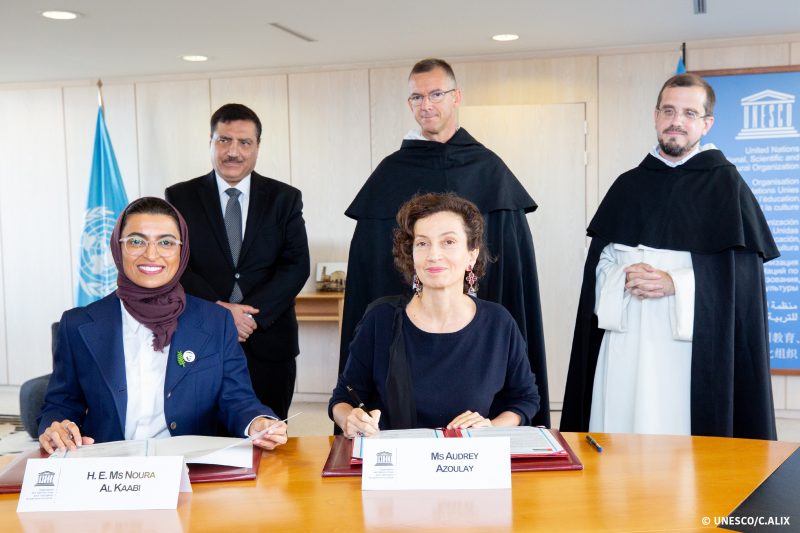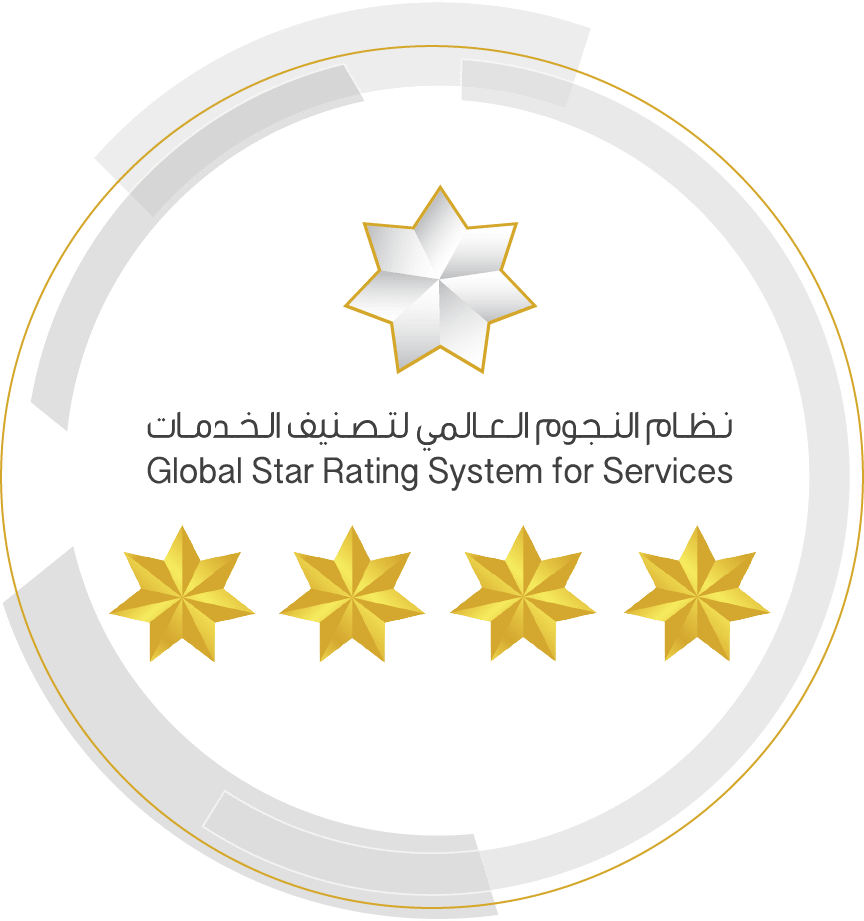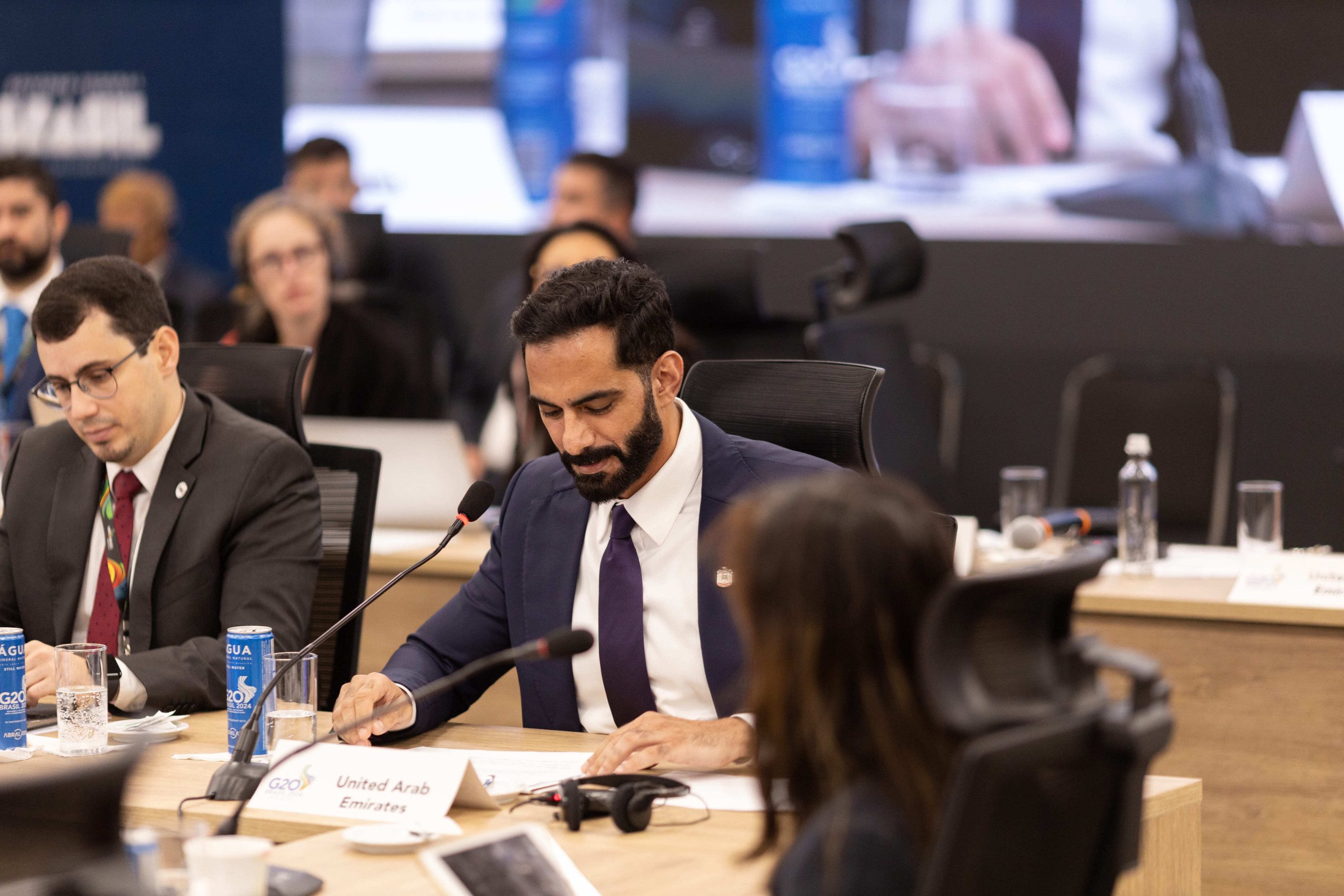
The United Arab Emirates and UNESCO renew partnership to restore two historic churches in Mosul, Iraq
October 10, 2019
The United Arab Emirates and the United Nations Educational, Scientific and Cultural Organisation (UNESCO) renewed their collaboration to the flagship UNESCO initiative Revive the Spirit of Mosul earlier this morning, extending the historic partnership on restoration and reconstruction efforts in Mosul, Iraq. Her Excellency Noura bint Mohammed Al Kaabi, UAE Minister of Culture and Knowledge Development; and Audrey Azoulay, Director General of UNESCO met earlier today at the organisation’s headquarters in Paris, signaling a continued focus on rebuilding iconic landmarks that lie at the core of human civilisations. This agreement arises in line with the UAE championing 2019 as the Year of Tolerance, emphasising tolerance as a universal concept and a sustainable institutional endeavour through legislation and policies aimed at entrenching the values of tolerance, dialogue, coexistence and openness to different cultures.
Concluding in the presence of His Excellency, Abdulrahman Hamid al-Husseini, Iraq’s Ambassador to France; HE Dr. Mohamed Ali Al Hakim, Under Secretary General and Executive Secretary of the United Nations Economic and Social Commission for Western Asia (ESCWA); Brother Nicolas Tixier, Prior Provincial of the Province of France of the Dominican Order; and Brother Olivier Poquillon, General Secretary of the Commission of the Bishops’ Conferences of the EU, the new agreement today reiterates the restoration efforts for the rebuilding of two destroyed cultural sites; the Al-Tahera Church and the Al-Saa’a Church.
The project is an extension of the historic agreement signed earlier in April 2018 whereby the Emirates committed $50.4 million to contribute to the rebuilding of the cultural heritage of Mosul. The project initially concerned the restoration and reconstruction of the historic landmarks of Mosul, notably the emblematic Al-Nouri Mosque and its celebrated, leaning 45-metre Al-Hadba Minaret, built more than 840 years ago. With the renewed partnership, the UAE will support the reconstruction of the 800-year old Al-Tahera Church, located in the Midan area in Mosul’s Old City and considered one of the oldest churches in the area, dating back to the first millennium; and the Al-Saa Church, also known as Our Lady of the Hour Church, which became a living example of the brotherhood between the people of Mosul who have graduated from its educational institution, regardless of their religious background.
These efforts will also contribute to the construction of a museum and memorial site which will exhibit and preserve remnants and history of the restored mosque and churches, with engaging community and educational spaces. The museum and memorial will have a long-lasting impact on Mosul’s young community with the creation of training and job opportunities for over 1,000 young Moslawis, the development of sustainable skills for those employed by the project and through educational and training opportunities, and the significant contribution of the project to the local economy through cultural tourism for Mosul and Iraq.
To date, the project has employed 27 Iraqis and contracted 4 Iraqi companies, with efforts to further bolster this growth as the project progresses. The UAE has also engaged with over 50 local Iraqis to receive direct feedback about their perspective on the restoration of the cultural sites that reflect their country’s legacy.
Speaking on the momentous occasion, HE Noura Al Kaabi remarked: “We are very honoured to sign this partnership with UNESCO and the people of Iraq to take our efforts further in helping rebuild Mosul and reviving the spirit of co-existence and social cohesion. Our work with UNESCO around the world is testament to our country’s commitment to furthering the organisation’s mandate through international cooperation within the fields of education, culture and science. Today’s signing is a pioneering partnership that sends a message of light, in seemingly darker times. By rebuilding a fraction of the past, Iraq can shape its future as an inclusive, tolerant and open society which has always found a tangible manifestation in Mosul’s rich historical sites.
“As we start working with UNESCO to reconstruct the ancient Al-Tahera Church, considered to be one of the most ancient churches in Mosul dating back to the 7th Century; as we break ground rebuilding ‘Our Lady of the Hour’, a catholic church built by Dominican Fathers; the UAE becomes the first country in the world to reconstruct Christian churches in Iraq.” HE Noura Al Kaabi concluded.
Audrey Azoulay, UNESCO’s General Director joined HE Al Kaabi in the announcement of the renewed partnership: “Today was an important step for the recovery of the Old City of Mosul. With the inclusion of the two churches Al Tahera and Al-Saa in our project we are all strongly mobilized. This rehabilitation aims to reclaim the true spirit of the City, a story of peaceful coexistence between different religious and ethnic groups. I am thankful to the United Arab Emirates and Minister Al Kaabi who have generously supported our Initiative since the beginning, and who believe, as we do, that there is no true reconstruction and revival without Culture and Education.”
The Al-Tahera Church of Syriac Catholics in Mosul is considered as one of the largest and oldest churches in the Old City of Mosul. Located in the heart of the first inhabited hilltop of Mosul, known as Qile’aat, near the river, Al-Tahera was surrounded by other churches and mosques. Before its destruction, the church used to include a school, a library, and a healthcare centre, and it was symbolic of the peaceful coexistence between Christian and Muslim communities in the Old City of Mosul.
The Al-Saa’a Church, which means “Church of the Clock” in Arabic, lies at the heart of the Old City of Mosul. Belonging to the Dominican Fathers, who built it between 1866 and 1873, historians say that Empress Eugenie (María Eugenia de Montijo), wife of Napoleon III, the last emperor of France, donated the funding for the bell tower, which is one of the iconic landmarks of the historic town of Mosul today. Al-Saa’a Church used to have a school and many Moslawis graduated from this educational institution, regardless of their faith, Christian or Muslim.





